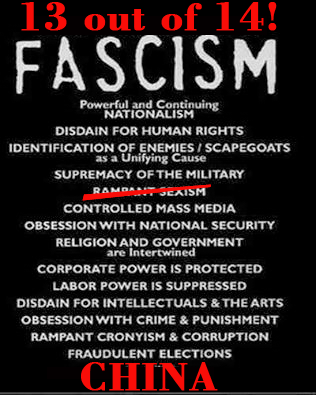 BEIJING, Feb. 5 (Xinhua) — Once again, China’s efforts to regulate cyberspace have been interpreted as restriction of freedom of speech, but such views stem from a misunderstanding based on long-term prejudice.
BEIJING, Feb. 5 (Xinhua) — Once again, China’s efforts to regulate cyberspace have been interpreted as restriction of freedom of speech, but such views stem from a misunderstanding based on long-term prejudice.
On Wednesday, the Cyberspace Administration of China (CAC) issued a regulation banning the use of Internet avatars and account handles that feature malicious content. It applies to chat rooms, blogs, instant messaging services and all other Internet services.
The regulation stipulates that avatars and account handles should not include information that violates the Constitution or China’s laws, subverts state power, undermines national security and sovereignty, or is deemed rumormongering.
It came after a series of cases in which accounts were fraudulently posed as those of celebrities and foreign leaders, while others were posed as the accounts of official media or institutions and publicized false information.
However, the move was described in foreign reports as a further effort to tighten control of Internet use and censor challenges to the communist political system.
It is not the first time that Internet regulation has been misunderstood in this way. Last month, the CAC shut down 133 accounts on popular instant messaging app WeChat for publishing illegal content that “disobeyed socialist core values” and “severely disturbed the online order.” Foreign media had a feeding frenzy.
However, the truth is that those accounts had a negative impacts on society. One of those closed was an imposter named “Communist Party of China Central Commission for Discipline Inspection’s (CCDI) inspection groups”, while another had a name with misleadingly similar Chinese characters to the People’s Daily, the Communist Party of China’s flagship newspaper.
These two deceived the public with information that was presented as authoritative but was in fact no such thing. Other accounts were related to terrorism, violence and pornography. They deserve no protection of freedom of speech.
Virtual space on the Internet is not an outer space of law. China always protects freedom of speech on the Internet and promotes the use of it, but with a precondition of abiding by related laws and regulations, as well as some widely accepted moral principles and values.
Internet content is censored not only in China, but also in other countries including the United States. Although freedom of speech is strictly protected by the First Amendment, the United States has enacted federal laws to provide exceptions to free speech.
In 1998, it enacted the Digital Millennium Copyright Act to better protect copyright on the Internet; in December 2000, the Children’s Internet Protection Act was signed into law to restrict minors’ access to harmful and inappropriate online material. The United States has also blacklisted some websites under the Trading with the Enemy Act 1917.
The bias against China’s Internet regulation may originate from the different political systems in other countries. However, there is no difference between China and the rest of the world in promoting the free mobility of information while protecting the legitimate rights of the public and individuals.